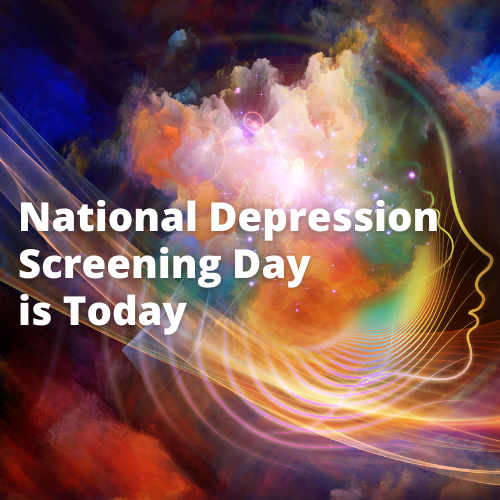
National Depression Screening Day is Today
National Depression Screening Day – what is it?
National Depression Screening Day is today. Many mental health organizations participate to encourage screening, including Mental Health America. They have a B4Stage4 campaign with the stage 4 often attributed to the stages of cancer or other terminal physical disease. But it also applies to mental health. In the case of cancer, stage 4 means that the situation is urgent and critical. The key is to stop the progression as soon as the disease can be detected, which is usually at stage 1.
In the case of mental health, the progression and strategy is similar. It’s just as important to assess and treat or prevent. You can screen yourself here for depression, anxiety or other conditions.
The purpose of B4Stage4 is to do exactly that. This movement provides information about how biology, environment, lifestyle and genes all affect our mental health. B4Stage4 also provides information about early intervention and identification as well as screenings to help you evaluate the need for treatment. There are even some resources for self-care or help with understanding insurance options if professional care is needed.
The 4 Stages
Stage 1- Symptoms begin but are not invasive to a normal lifestyle. For example, a person may feel anxious or depressed and take a mental health day off of work, but are able to recover and move on.
Stage 2- Symptoms, if they go untreated, become more frequent and severe and may interfere with normal activities. In this stage, it starts to become obvious to outsiders that something is wrong. The affected person may be getting increasingly irritable with others, or falling behind on their normal work.
Stage 3- Symptoms are severe and causing constant disruption of daily activities. Symptoms that may not have occurred simultaneously before definitely are now. Marriages start to become jeopardized, or the person may be walking on thin ice with work or other responsibilities.
Stage 4- Symptoms are so severe that they have interfered with the person’s life in big ways such as job loss, incarceration, divorce, etc.
While mental health is a personal issue, the way we think of mental health as a society makes a huge difference in recovery. If more people could recognize the signs of a mental health crisis or even the signs of someone in stage 1 or 2 of a mental illness and could address it appropriately, we could all add value to the fight for mental health recovery and prevention.
How to get help
Everyone’s recovery journey is unique. Once out of treatment it’s important to work with your counselor on next steps because it allows the individual to stay on target with their recovery goals.
Here at Lifeline Connections, we offer all of these things with our substance use treatment services and recovery community. Additionally our compassionate counselors are a phone call away to help you start your recovery journey. Call (360) 397-8246 ext. 30500 to schedule an appointment for your assessment today.
